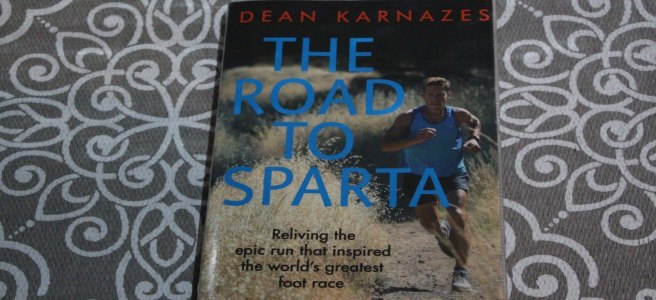How did Dean Karnazes’ heritage influence his running?
Both his maternal and paternal roots are in Greece, and are known for both their resilience and tranquil way of life. Karnazes’s genetic linkage is also distinguished by abnormally enlarged, bifurcated calf muscles.
Growing up, did Dean Karnazes run?
Yes, Karnazes did run, winning a mile race at school and enjoying cross country. Inspired by his coach and teammates he sometimes ran 70-80 miles a week. At 14 years old, he overcame severe pain to run 105 laps of a track, equivalent to a marathon, raising money for his high school. Similar to East African runners Karnazes found running home from school freeing.
Did Dean Karnazes pursue a running career once he became an adult?
No. Instead of pursuing a running career Karnazes sought a high salary and status, becoming a millionaire by his late 20s by working at GlaxoSmithKline.
What was the catalyst for Dean Karnazes’ ultrarunning career?
Partly discontent with his corporate job and seeking a new challenge, he ran 30-miles on the night of his 30th birthday, wearing only pants and trainers. From that moment on he became addicted to the sport. He would often run more than once a day, and 8-10 hours non-stop each day of the weekend. His commitment lead him to become a sponsored athlete, after finishing The North Face, a 100-mile footrace. He then quit his corporate job to become a full-time athlete.
What is his advice to ultrarunners?
Karnazes’ ultrarunning advice is to always hope for the best, but plan for the worst. Multiple contingency plans are essential. Interestingly, despite enjoying competing Karnazes preferred less-structured adventure outside of racecourse boundaries. Due to his natural introversion he would run for hours and sometimes days alone, away from home.
What did Dean Karnazes discover about Ancient Greek ultrarunners?
During his journey of self-discovery he came across hemerodromoi, professional day-long runners in Ancient Greek times. These athletes would cover incredible distances on foot, over rocky and mountainous terrain, forgoing sleep. Hemerodromia were men of high strength-to-weight ratios, upstanding characters and hugely patriotic. They ran barefoot or in leather sandals, and ate figs, olives, dried meats and pastela (ground sesame seeds and honey in paste form).
What is the story of Pheidippides?
Pheidippides was one of the best hemerodromia of his times, and was needed to carry important messages between Athenians and Spartans during the invasion of the Persian armies around 490 BC. He is said to have run from Athens to Sparta (136-142 miles) for 36 hours straight, only to return to Athens in 2 days after a brief stop. He then had to run 25 miles to Marathon and once again run back to Athens. Unsurprisingly he died of exhaustion, covering over 300 miles in less than a week.
How did Dean Karnazes prepare for the Spartathlon?
Intrigued to replicate Pheidippides’ epic journey, Karnazes completed a number of adventures.
- He ran the Silicon Valley Marathon half naked dressed as Pheidippides.
- He ran 700 miles to the 2007 San Diego Rock ‘n’ Roll Marathon, then completed the marathon in 3 hours and 16 minutes, consuming 7,500 kilocalories on route.
- He trained 100 miles per week, with 80-mile training runs once a month and completing a host of 50-mile and 100-km races to maintain his competitive edge.
He benefited from his life on the coast of California, USA, because Greece is similar in mountainous terrain, and warm, dry temperature. Unsurprisingly he felt at home in Greece, despite the jet-lag and illnesses from regular plane journeys. He also cross-trained a lot in the gym but never felt self-assured leading to race day.
What happened when Dean Karnazes ran the 2014 Spartathlon?
The annual Spartathlon consists of 153 miles (equivalent to almost 6 marathons) from Athens to Sparta, replicating part of Pheidippides’ legendary athletic mission 2,500 years ago.
At spectator points Karnazes had to sign autographs for his fans, fulfill interviews and be followed by constant photographers. When he was alone, he suffered nausea, hallucinations, and even an out-of-body experience (watching himself running outside of his body). He ran whilst asleep for brief moments and failed to consume many calories.
Although he wasn’t all that pleased with his performance he completed the race in 34 hours, 44 minutes and 49 seconds, finishing in 131st position.

